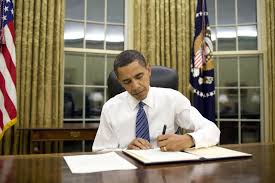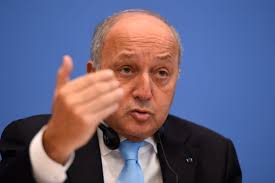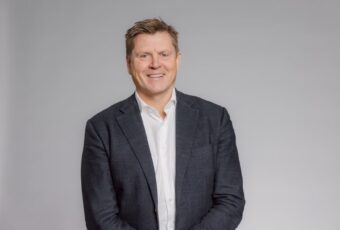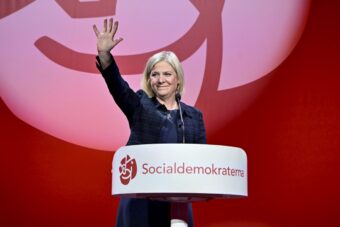
LE BOURGET, France (AP) President Barack Obama says the climate agreement reached in Paris on Saturday offers «the best chance to save the one planet we have», according to Associated PressIn a statement delivered from the Cabinet Room, Obama says we can be more confident the planet is going to be in better shape for the next generation, and that the deal shows the world has the will and ability to take on «this challenge.»Obama says no nation could solve the problem of climate change alone, and he warns that even if all the goals are met the world is only on its way to reducing carbon in the atmosphere. He says the Paris agreement establishes an enduring framework that the world needs to tackle the problem.
Proud of the Agreement
French President Francois Hollande says,according to Ap, that he is proud of the commitments of nearly 200 countries that have adopted the Paris agreement. The deal calls on the world to collectively cut and then eliminate greenhouse gas pollution but imposes no sanctions on countries that don’t. It aims to keep global temperatures from rising another degree Celsius (1.8 Fahrenheit) between now and 2100.Hollande told delegates in Paris on Saturday that «you did it!»The French president says «the 12th of December, 2015, will remain a great date for the planet. In Paris, there have been many revolutions over the centuries. Today it is the most beautiful and the most peaceful revolution that has just been accomplished.»
Seven years effort
U.N. Secretary General Ban Ki-moon says the Paris agreement caps a seven-year effort to get the world to act on climate change. As nations took turns praising the agreement Saturday, Ban says «what was once unthinkable is now unstoppable … it’s a good agreement and you should all be proud.»»History will remember this day,» Ban said. «The Paris agreement on climate change is a monumental success for the planet and its people.»The U.N. chief, who spoke about traveling the globe to hear victims talk about struggling with the effects of climate change, told victims that the world is now listening to them. He added «the world starts from tomorrow.», according to Ap
Leaading the Plenary
French Foreign Minister Laurent Fabius has been leading plenary meetings at the two weeks of U.N. climate talks. Hollande’s presence will give extra weight to Saturday’s session. Negotiators emerged from a late-night meeting with French Foreign Minister Laurent Fabius with signs that a deal was getting close. The last draft accord, released Thursday night, did not resolve several key issues, including how rich and developing countries would share the burden in fighting global warming. The latest on the U.N. climate conference outside Paris (all times local):9:20 a.m. Several environmental and human rights groups are planning protests around Paris on Saturday to call attention to populations threatened by man-made global warming and urge an end to human use of oil, gas and coal.
Nuclear Power in France
The protests are timed to coincide with the end of two weeks of climate talks outside Paris. Organizers are hoping to reach a final international accord sometime Saturday. The last big climate protests in Paris, on the eve of the talks Nov. 29, ended in tear gas and more than 100 arrests as some activists defied a ban on demonstrations. The ban was linked to France’s state of emergency, put in place because of Islamic extremist attacks a month ago. Organizers say their main demonstration Saturday, near the Eiffel Tower, has been authorized by Paris police.
Still work to do
«I will not present the text Friday evening, as I had thought, but Saturday morning,» Fabius said on BFM television. «There is still work to do … Things are going in the right direction.» Fabius said he wanted to consult with various negotiating blocs so that «this is really a text … that comes from everyone.»
«This represents all of the countries in the world and it’s completely normal to take a bit of time, so we will shift it,» he said. Negotiators from China, the U.S. and other nations are haggling over how to share the burden of fighting climate change and paying for a trillion-dollar transition to clean energy.
Rich Nations must shift
Earlier, some delegates said a new draft presented late Thursday by Fabius allowed rich nations to shift the responsibility of fighting global warming to the developing world. «We are going backwards,» said Gurdial Singh Nijar of Malaysia, the head of a bloc of hardline countries that also includes India, China and Saudi Arabia. They have put up the fiercest resistance against attempts by the U.S., the European Union and other wealthy nations to make emerging economies pitch in to reduce global greenhouse gas emissions and help the poorest countries cope with climate change. The issue, known as «differentiation» in United Nations climate lingo, was expected to be one of the last to be resolved.
«We’re working on it,» Kerry said as he emerged from one meeting room with an entourage of security agents and State Department aides. Nijar said it was unreasonable to expect countries like Malaysia to rapidly shift from fossil fuels — the biggest source of man-made greenhouse gas emissions — to cleaner sources of energy.
«We cannot just switch overnight … and go to renewables,» he said, on a coffee break between meetings at 1:30 a.m. «If you remove differentiation you create very serious problems for developing countries.»
Kyoto for rich countries
This accord is the first time all countries are expected to pitch in — the previous emissions treaty, the 1997 Kyoto Protocol, only included rich countries. The 27-page draft — two pages shorter than a previous version — included a long-term goal of keeping global warming «well below» 2 degrees Celsius (3.6 degrees Fahrenheit), while pursuing efforts to limit the temperature rise to 1.5 degrees Celsius.
«As soon as possible»
The draft also said governments would aim to peak the emissions of heat-trapping greenhouse gases «as soon as possible» and strive to reach «emissions neutrality» by the second half of the century. That was weaker language than in previous drafts that included more specific emissions cuts and timeframes. The biggest challenge is to define the responsibilities of wealthy nations, which have polluted the most historically, and developing economies including China and India where emissions are growing the fastest.The draft didn’t resolve how to deal with demands from vulnerable countries to deal with unavoidable damage from rising seas and other climate impacts. One option said such «loss and damage» would be addressed in a way that doesn’t involve liability and compensation — a U.S. demand.Sylvie Corbet, Matthew Lee and Seth Borenstein in Le Bourget contributed to this report from Associated Press.




